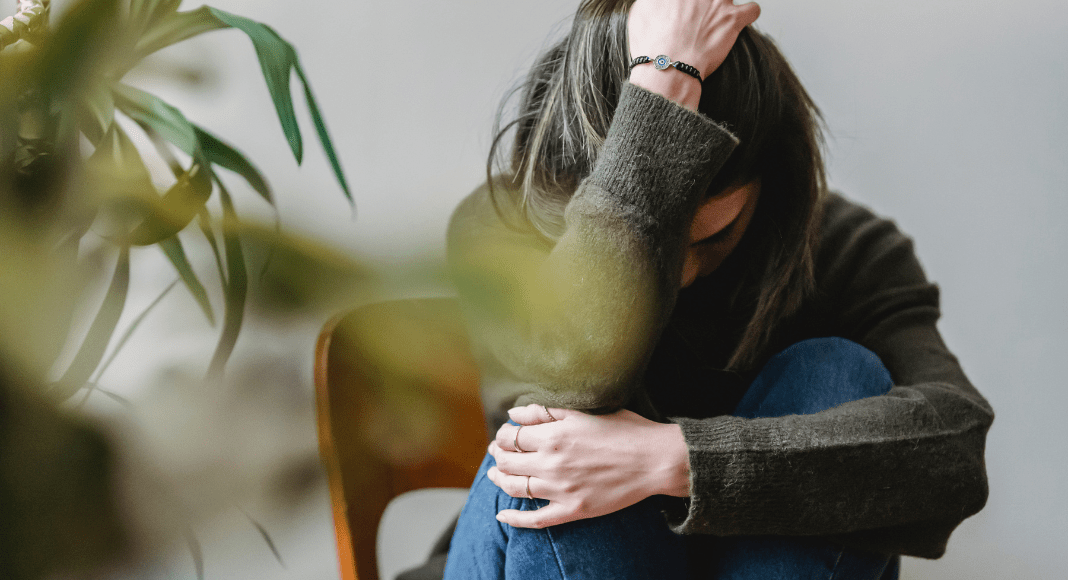Last week, I drove from Cincinnati to Lancaster to visit a friend of mine. I had meant to visit for her baby shower. I had intended to visit after the baby was born once all the commotion settled. Baby Sam was over 6 weeks old the day I made the two-hour trek to central Ohio.
I have known Anne for several years and Sam is her first child. I was so excited to see her face-to-face and to meet the little one. I had gotten a hotel for the night so that we had time to catch up. It was a chilly day but her house was warm and comfortable. She had the glow of a new mom… a spit-up-covered, mildly sleep-deprived glow. Sam felt small in my arms, the first infant I have held in years. I had finally made it to see my friend.
The next few hours we spent discussing diapers, daycare, and all other things related to her new baby.

Her husband was a great dad. The dogs were having a harder time getting adjusted than the humans. She was dreading the idea of returning to work in a month or so. As time progressed, though, we started to get real with one another, that special way only true friends can connect. Were we really happy? Fortunately, for both of us, the answer was yes, overall. But neither one of us was entirely happy and we felt safe enough with one another to go there.
I had the usual list of post-divorce headaches and mom guilt. Anne was brave enough to share with me that she had been diagnosed with postpartum depression. And it wasn’t going away. I shared with her that I, too, had struggled with postpartum with my second child. We then wondered together how often postpartum is not only experienced but actually discussed. What are the contributing factors and is there hope for a brighter future? I asked Ann what she thought would be most helpful if help was offered. Ultimately, the answer for her was to feel less alone.
There is a socialized assumption that motherhood will come entirely naturally, that it’s the most natural thing we could possibly experience. For some, this isn’t the case. For most, there will be moments or certain activities that feel anything but natural. Breastfeeding for example is a very different experience for women. It’s important to know that it is normal for motherhood to feel unnatural at times. You’ve spent your whole entire life leading up to this as an independent individual. Transitioning to a caregiver is quite the overhaul and it takes some getting used to.
Anne shared that for the most part, she loved being at home but she also felt that from the moment she wakes in the morning to the moment she goes to bed, she has to be there for Sam. His very health and well-being depend on her and she knows it. She went from being a full-time employee to a supervisor of a 9-pound boss who still wasn’t sleeping through the night. It was harder to see friends, more difficult to generate small talk, and just plain exhausting physically. Certainly, it can be easy to feel alone, even though it’s not uncommon at all to experience some form of emotional difficulty postpartum.
Here are some facts about postpartum depression we should all be aware of.
- According to the CDC, one out of 10 women will experience clinical depression postpartum. Because data can be difficult to collect, it’s very likely that this statistic underestimates the number of women who meet the criteria. Fortunately, 80% of women with postpartum depression will achieve a full recovery. So that leaves 20% who what? Dangle somewhere out there in existence with lingering postpartum forever and ever? The more realistic picture is that most clinical depression following birth does subside; however, there is a fair chance of lingering symptomatology.
- Statistically, women are nearly twice as likely as men to have had depression in their lifetime. We are also far more likely to seek treatment than our male counterparts (which is a very good thing).
- There are multiple paths to recovery. Treatment for baby blues can include counseling, medication, support groups, and supplemental support (such as yoga, exercise, and meditation). Since the pandemic, online support groups have become a staple resource for free, available support. You can tailor interventions to suit your personality, your schedule, and your needs.
- It may sound trite but you have to take care of yourself, too. According to the Sleep Foundation, research suggests that both mothers and fathers of young babies are more likely to have depressive symptoms if the mother sleeps poorly. There can be a lot of internal pressure to get things done when the baby is sleeping but really, sleeping yourself has to also be on your priority list. In terms of exercise and physical health, the 4th Trimester Project reports that women can ease into physical activity by walking and stretching and potentially resume full exercise around 4 to 6 weeks postpartum. Be gentle with your body. It’s been through quite an ordeal!
It’s worth repeating that if you are struggling with postpartum depression, know you are not alone. It’s okay to not be okay. When it does become problematic, it’s important to reach out. It doesn’t make you a bad mom. It makes you human.












